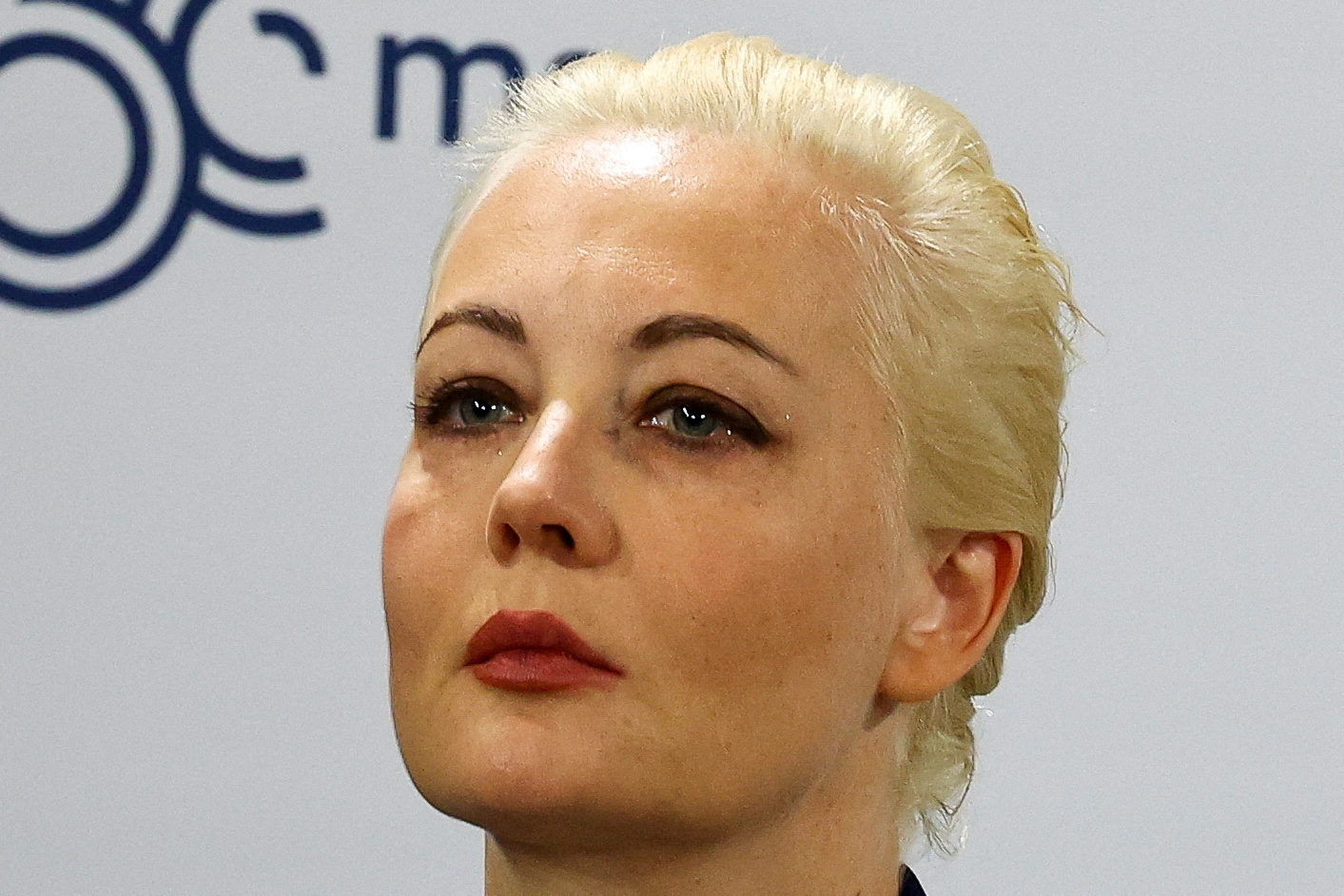Navalny's wife calls for Putin to be punished at global security summit
[1/5]Yulia Navalnaya, wife of late Russian opposition leader Alexei Navalny, attends the Munich Security Conference (MSC), on the day it was announced that Alexei Navalny is dead, by the prison service of the Yamalo-Nenets region where he had been serving his sentence, in Munich, Germany February 16,... Purchase Licensing Rights
MUNICH, Feb 16 (Reuters) - The wife of Alexei Navalny led calls on Friday at a Western security gathering for Russian President Vladimir Putin to be held accountable for the jailed Kremlin opponent's death.
Hundreds of politicians, military officers and diplomats were in the German city of Munich for the three-day annual conference dubbed the "Davos of Defence".
The gathering was expected to be dominated by war in Israel and Ukraine as well as fears over U.S. commitment to defence if former President Donald Trump is re-elected.
But it was jolted by the Russian prison service's report that Navalny fell unconscious and died after a walk at an Arctic penal colony. Organizers broke the schedule to let Navalny's wife Yulia Navalnaya speak.
"I thought for a long time if I should come out here or immediately fly to my children," Navalnaya said, receiving a standing ovation as she came on stage.
"But then I thought what Alexei would do in my place. And I'm sure he would be here, he would be on this stage."
Navalnaya said she did not know whether to believe Russian authorities. "But if this is true, I want Putin, his entire entourage, Putin’s friends, his government to know that they will bear responsibility for what they did to our country, to my family, to my husband."
U.S. Vice President Kamala Harris also told the conference that if confirmed, Navalny's death would be a further sign of Putin's brutality. "Whatever story they tell, let us be clear, Russia is responsible."
Navalnaya met with both Harris and U.S. Secretary of State Antony Blinken on the sidelines of the Munich Security Conference.
The event comes as worries in Europe grow about U.S. commitment to helping Ukraine fend off Putin's full-scale invasion and to defending its allies more broadly.
Trump, frontrunner for the Republican presidential nomination, has said he would not defend NATO allies who fail to spend enough on defence. And Trump-supporting Republicans in Congress are blocking aid for Ukraine's defence against Russia.
Harris sought to reassure Europe, saying her and President Joe Biden's "sacred commitment to NATO remains ironclad" and that their administration would keep pressing to help Ukraine secure the weapons and resources it needs.
RUSSIANS NOT INVITED
Ukrainian President Volodymyr Zelenskiy earlier on Friday lamented a decrease in support from allies, making Germany's continued strong backing all the more critical. It became the second country to sign long-term security assurances for Kyiv. France is expected to follow later on Friday.
No Russian officials were invited to the conference for the second year in a row.
Zelenskiy is due to speak at the event on Saturday and hold a bilateral meeting with Harris.
The conference takes place as the war in the Gaza Strip between Israel and the Palestinian militant group Hamas, in which more than 28,000 Palestinians and about 1,430 Israelis have been killed, enters its fifth month with no end in sight.
Senior U.S., Arab and European officials met in Munich on Friday to discuss efforts to formulate a plan for post-war Gaza that would be linked to normalising ties between Israel and Saudi Arabia, officials and diplomats said.
Blinken, Saudi Arabian Foreign Minister Prince Faisal bin Farhan and the foreign ministers of Jordan, Qatar, Germany, Britain, France and Italy were among those present.
Officials said the meeting was the first in such a format since Oct. 7 when Hamas attacked Israel.
The aim was for U.S., European and Arab states to share discussions they have had on post-war Gaza, Israel-Saudi normalisation, Israel's wider integration into the region and security guarantees, a pathway towards a Palestinian state and how to reform the Palestinian Authority, a senior U.S. official said.
Western and Arab states have shown divisions on the Israeli-Palestinian conflict and their response has mostly been to try to ease the humanitarian situation in the enclave.
However, with the number of civilian casualties increasing, officials say there is a sense of urgency to put a plan together for Gaza in the event of an extended ceasefire.
Sign up here.
Reporting by Sarah Marsh, Matthias Williams and Kirsti Knolle in Berlin, Humeyra Pamuk, John Irish, Andrew Gray and Andreas Rinke in Munich, William James in London, Gabrielle Tétrault-Farber in Geneva; editing by Matthias Williams, Sharon Singleton, Andrew Cawthorne and Cynthia Osterman
Our Standards: The Thomson Reuters Trust Principles.

